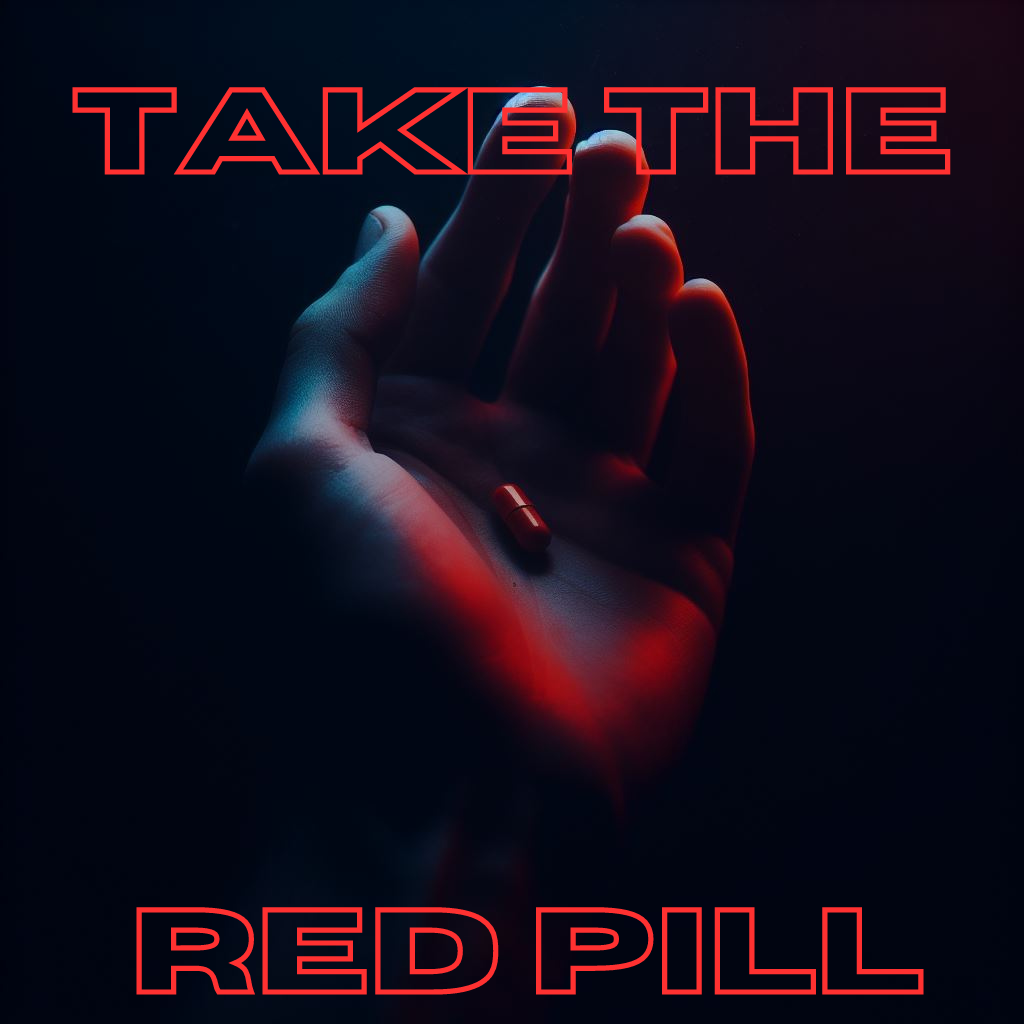Many young men, particularly those in Gen Z, are being affected globally by what some consider to be a radical ideology. Dubbed the Red Pill movement, it is believed by some to be the ultimate threat to the progress made for women’s rights and, by extension, human rights.
However, others believe the Red Pill movement provides valuable knowledge necessary for navigating modern society. To understand the movement and its community, we have to analyze what the Red Pill movement is, who is part of it, and how it is affecting young men and Gen Z as a whole.
There are two components to the Red Pill: the terminology and the mentality. The terminology originates from the late 90s movie The Matrix, which tells the sci-fi story of a future world where machines are in control and most humans unknowingly exist in a computer simulation while actually being used as human “batteries.” The protagonist, Neo, is offered the choice between taking a red pill, symbolizing waking up to reality, and a blue pill, symbolizing remaining ignorant and oppressed.
Over time, the concept of “taking the red pill” became used to suggest being aware of what is really going on in the world instead of just accepting what you see on the mainstream media. Some groups used it to promote radical ideas or conspiracies. Today, the Red Pill movement is associated with many content creators in a counter-movement against third-wave feminism, as well as a desire for self-care and male empowerment.
As far as the counter-movement against feminism goes, it is important to note that anti-feminism has existed since the 1800s, when the first women’s rights movement began, and that misogyny (which Oxford Dictionary refers to a “dislike of, contempt for, or ingrained prejudice against women) has actually existed for several millennia.
Why is the Red Pill relevant now? Ideologies require a platform or a space to grow, and the internet is the perfect tool for spreading such ideas. Combining a controversial concept with the internet is a recipe for rapidly promoting anti-feminist ideologies, which is exactly what happened. People like Roosh V, Rollo Tomassi, Andrew Tate, Sneako, and Jordan Peterson stand at the forefront of the movement. Some of the people listed are less known than others, while some are more problematic than others.
One thing is objectively true: These men have made a significant contribution to the movement and, in turn, have made an impression on Gen Z. Moving forward, we will see in deeper detail who each of these men are, what they believe, and what they have done for the Red Pill community.
Daryush Valizadeh
Known online as Roosh V, Daryush Valizadeh is a highly controversial blogger, pickup artist, and author who has garnered a reputation for his generalizations about women, views on consent, social views, and his books. Roosh V sits with the most toxic side of the Red Pill community, saying things like this: “Systems must now be put in place where a woman’s behavior is monitored and her decisions subject to approval of a male relative or guardian who understands what’s in her best interests better than she does herself.”
Roosh V has no reservations about being vulgar (so much so that it is not possible to print some of his better known quotes here) and holding a superiority complex over women. However, these bold claims have served him no favors. Many people, even some Red Pill members, regard Roosh V as a womanizer, a misogynist, and overall, a terrible person.
Rollo Tomassi
Tomassi is known for authoring The Rational Male, a book which takes a more calculated and logic-driven approach to Red Pill ideologies. In it, he discusses concepts like hypergamy (having a relationship with someone of higher status), Alpha/Beta male dynamics (the concept of men being dominant and assertive (Alpha) or subordinate and passive (Beta)), and the advocacy for men to be more responsible in relationships. Tomassi’s ideals are generally more constructive than what other Red Pill influencers promote, particularly in holding men accountable for how they treat women in relationships.
However, the controversy lies in some of his more extreme Alpha/Beta male ideas and his opposition to many modern-feminist teachings. Even though some of his discussed topics are controversial, I do think there are some solid takeaways from his book, including its discussion of what qualities are attractive to other people, knowing how to navigate through rough patches in a relationship, learning to respect others and yourself, and understanding your identity and morals. I would argue that all of these ideas are incredibly important for everyone to know about, not just young men.
Andrew Tate
Tate is arguably the most well-known of the Red Pill thought leaders. Almost everyone in Gen Z has stumbled upon a YouTube or TikTok clip of him at some point. While he has numerous controversial opinions and quotes, some speculate Tate says inflammatory things on purpose. Tate has a money-making scheme where he has people purchase a course known as “Hustler’s University” (which is not a formal educational institution), that promises to teach highly effective money-making methods. He uses these recruits to take clips of him and post them on social media, thus boosting his online presence and making him more money through his course.
The majority of Tate’s online content is degrading and insulting to others. When discussing women and their sense of independence, Tate said, “Women don’t really want freedom. They say they do, but they don’t. Women want to be led, they want to be dominated, they want to be guided.” Romanian authorities indicted and imprisoned Tate in December of 2022 on charges of sex trafficking and rape, based on allegations of transporting seven women to Romania, where they allegedly faced violence and sexual assault. Similar to Roosh V, Tate represents the worst aspects of the Red Pill community.
Sneako
A popular content creator whose real name is believed to be Nicholas Kenn de Ballinthazy, Sneako is known for his controversial opinions and his association with Tate. There is a clip circling online, which appears to have been a recording from one of his Rumble live streams, of kids in public saying, “F— the women!” in which Sneako immediately corrects the kids by saying, “What? No, no, wait, wait, we love the women!” The shift in tonality between what Sneako says here and what he says in his videos calls into question whether or not he believes what he says online, or whether such responses are just an attempt to create controversy.
In another clip, a kid says, “All gays should die!” and Sneako awkwardly laughs it off. “What have I done?” he nervously says. This suggests that Sneako knows his online comments have made an unfortunate impact on younger people. It’s hard to understand his true motives, but it can be said with certainty that Sneako has made a noticeable impact on Gen Z and even Gen Alpha, and it’ll be hard to undo his poor influence on kids, even if he truly regrets it.
Jordan Peterson
Peterson, a clinical psychologist and professor of psychology who opposed Canada’s C-16 bill (which intended to advocate for gender identity and expression), is associated with the Red Pill community, primarily because of his advocacy for men’s rights, despite his claims of not supporting Red Pill ideologies. Peterson has openly criticized individuals like Tate, calling them “parasitic predators” within the community.
However, the source of Peterson’s controversy is primarily in his opposition to the C-16 bill, which he argues has “compelled speech” or forced people, particularly in academics or medicine like Peterson, to say or promote ideas they do not agree with.
Many are quick to critique Peterson, not for his academic or medical opinions, but for his emotionality. He is a surprisingly empathetic individual, sometimes even tearing up at the topics he covers. In an interview with Piers Morgan covering Olivie Wilde’s movie Don’t Worry Darling (the villain of which is supposedly based on Peterson), Morgan asked him if he is the “intellectual hero to incels (involuntarily celibate),” to which Peterson responds sarcastically, “Sure, why not. People have been after me for a long time because I’ve been speaking to disaffected young men–what a terrible thing to do, that is.” There is a momentary pause where Peterson tears up and adds, “I thought the marginalized were supposed to have a voice.”
There are more people out there who contribute to the Red Pill movement, both good and bad in what they promote, but ultimately I felt that these five individuals made some of the biggest impacts on either Gen Z or the Red Pill community. I think it’s important, more so now than ever before, that young people realize the truth of relationships, health, and self-improvement.
However, I don’t think the Red Pill community offers enough of this positive truth. Modern media has a habit of promoting extremism or making things a bigger deal than they are. Yet for a movement that claims to open its followers’ minds to the truth, these online influencers perpetuate a lot of black-and-white concepts, making them not so different from the media they criticize.
The result is that you see young men blaming either themselves or women for their romantic misfortunes, when oftentimes, nobody is at fault. Alternatively, when men are at fault, they might dodge their responsibility instead of taking accountability. This is just one example of the extremist effect of Red Pill ideologies on young men.
I asked Allen Speigner, an influencer and cookbook author who focuses on making fitness accessible to all, about his stance on the typical Red Pill ideologies we see being promoted online. Speigner’s background in fitness, health, and general self-improvement on social media makes him the perfect person to ask about the negative effects of Red Pill concepts.
“I don’t necessarily disagree with some of the things they say, but they say it in really poor ways for more attention. The overly manly stuff is definitely corny, though,” Speigner said.
As for the positive effects of Red Pill ideas, Speigner remarked, “I think self-worth and becoming a strong individual is important and it seems to set a fire among a lot of people which can be beneficial if they’re striving to become better people.”
When talking about the observed impact made by the movement on Gen Z, Speigner argued, “I think it has made a big impact on Gen Z, but not like, massive. I think it can be both good and bad depending on the level of extremity it goes into.”
While there is a prevalent toxicity within the Red Pill community, there is a case for optimism across the board with Gen Z. Many young men have grown skeptical of the Red Pill thought leaders, and approach the subject rationally, as Speigner does. However, there is still a threat of dangerous ideologies that threaten to undo social progress, so it is crucial that Gen Z, especially young men, do a sufficient amount of research to fully understand who they’re listening to and whether or not the information they’re hearing is credible or not.
Though it is both sad and ironic that a group claiming to show the truth may be spreading the opposite, I think it serves as a good reminder of how important it is for Gen Z to develop its critical thinking and discernment skills.







